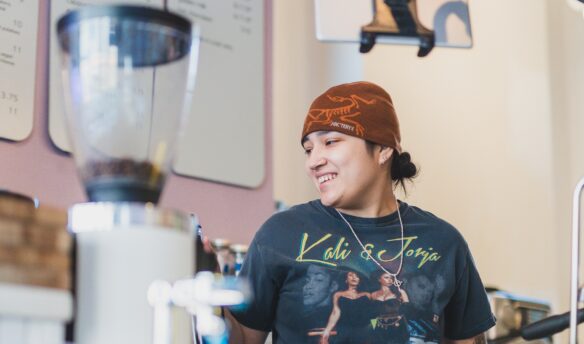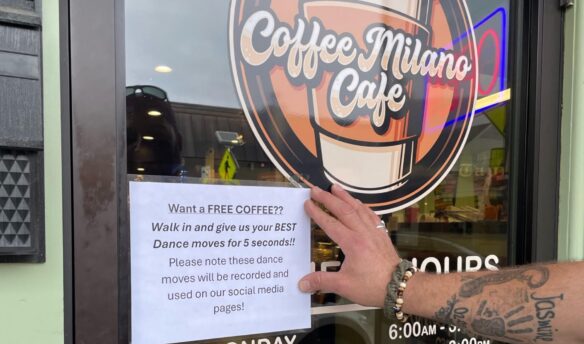One of the best, time-tested ways of getting the word out about your business is through the media. A glowing review or insightful profile can generate positive attention to your business or establish expertise and credibility in your field. But for those who don’t have experience with interviews, talking to a journalist can be anxiety-inducing.
Without adequate preparation, you risk having bad quotes attributed to you or being quoted in an article you feel didn’t represent you accurately. “Winging it” is not a strategy to use for a media interview.
As a freelance writer, I’ve conducted quite a few interviews and spoken to many first-time interviewees, and my goal is to ask questions that highlight the person and business in a neutral to positive way. Unfortunately, I’ve spoken to people who avoid answering questions by going off on a tangent or who reply in so few words or phrases that they become unquotable. Some sources provided me with far more information than was needed for my article topic or, alternatively, speak as if I already knew all the industry lingo in their field. But with proper preparation, you can help ensure that media coverage accurately spotlights you and your business.
Getting Ready To Shine
There are two ways to think about getting ready for an interview: as a representative of your business and as an individual. The first step to take when developing your media strategy can happen with or without an interview request sitting in your inbox: assemble your press kit.
If a journalist or publication contacts you about your business, having a digital press kit ready with photos and company information (facts like founding date, addresses, and co-owner names) removes the tedious back-and-forth emails and endless searches for suitable photos. A press kit can be created and updated anytime; some companies use a direct download link on their website to help writers with their research. These kinds of requests may not always be accompanied by an interview.
As an individual and the person representing the business, there’s a lot of pressure to accurately convey your industry expertise. If you’re the only specialty coffee roaster in your area, for example, you may want to be known as the local expert on specialty coffee. In an article about coffee, a local journalist may ask you for an “expert quote” on the subject and include your position at the company. This establishes you as the subject matter expert in their article and, by proxy, provides exposure for your business. This is a broad example; you could be the subject matter expert on “green coffee buying in Ethiopia” if that’s your niche.
Being able to share key messages concisely requires practice and preparation … The ultimate goal is to be seen as a confident thought leader and to secure additional media opportunities. Lori Sussle Bonanni, founder and communications consultant at elssus, LLC
Consider media training if you feel particularly daunted about speaking to the press but don’t have a PR agency. Media training entails a seasoned media professional teaching you how to communicate effectively about your business and handle common interview questions. It may also include role-playing scenarios, so you can practice honing your messages and navigate any possible tough questions. “Being able to share key messages concisely requires practice and preparation. The benefits of media training are many, including knowing how to protect your reputation,” advises Lori Sussle Bonanni, the founder and communications consultant at elssus, LLC, via email. “The ultimate goal is to be seen as a confident thought leader and to secure additional media opportunities.”
Holly Fann, a freelance food and dining critic whose recent bylines include Eater, Food & Wine, Plate, and Thrillist, agrees. “The pace of running a business leaves little time to do things like prepare for an interview, and many owners/operators feel as if having a mastery of their product should be sufficient when speaking with a journalist,” writes Fann via email. “While that may be engaging and enough for an impromptu conversation with a colleague, when representing your business, it is important to remember the intended audience and the knowledge level they possess.”
At this point, you’ve done all the preparation possible before talking to any press outlet. But once you receive that interview request, don’t be so quick to accept. Before agreeing to the interview, vet the journalist. Feel free to ask for information about them, the publication they’re writing for, their audience, and any relevant clips. It is also okay to ask a journalist about the article they’re working on—you don’t want to spend an hour with them, thinking it’s a one-on-one interview feature, only to learn that you were among three other expert sources in a news piece. Conversely, your responses will be different if it’s a positive piece on your cafe opening than if it’s a request for comment on a lawsuit against you.
Once you know what the article is about, you can assemble any important dates, facts, or figures, so you won’t need to pause the conversation to search for them. Some of these, like the founding year, your title, and the number of locations, can also rest in your press kit.
When The Tapes Are Rolling
Is this your first time being interviewed? Are you prone to rambling when you’re nervous? “It is common for first-time interviewees to ramble and feel as if they need to share all the information they possess about their business,” says Fann. “When this happens, the aspects of the business that are really important and that you want to share get lost.”
Conciseness is important when you’re being interviewed, but don’t be so brief that every answer is one sentence. Develop an elevator pitch, or short descriptor of talking points that highlight what makes your business stand out, and have these notes ready to reference. “Articles that owners think ‘miss the mark’ often happen because the journalist has been given no indication or idea on where to focus,” says Fann, “or what is important/exceptional/standout about that particular business.”
Another best practice tip is to pay attention to the question asked. “Don’t change the question because you don’t like it or want to address something else,” says Bonanni. “Provide an answer and back it up with insights and examples and then move on.” If you don’t know the answer, you can say that you want to double-check and then follow up later. You don’t want to fake the answer or be inauthentic to yourself.
Interviews are not one and done. Maintain relationships with the reporters and journalists who have worked with you. They want to know if you have breaking news or something special to share. Holly fann, freelance food and dining critic
In cases where you’ve secured interviews with multiple publications—perhaps in anticipation of opening a new location or launching a new product—save a unique nugget of information per publication so each one doesn’t sound like a regurgitated press release, advises Fann. Plus, it strengthens the bond between you and the journalist, increasing the likelihood they’ll contact you again for future stories.
Building A Media Relationship
Your interview experience isn’t over after talking to the journalist. Interviews are one point in the realm that is media relations.
“Interviews are not one and done,” Fann notes. “Maintain relationships with the reporters and journalists who have worked with you. They want to know if you have breaking news or something special to share.” And, if you were a good expert source, you’ll be kept in their digital Rolodex.
As for the article itself, it’s essential to know that you won’t get to review a draft, but you can request to verify your quotes for accuracy before they go to print. For the sake of objectivity and ethical reporting, journalists don’t share their stories with their sources. Mistakes happen, and quotes can easily be amended before they go to print if they are inaccurate. And if something does go to print with a factual inaccuracy (a press kit can help avoid some of these errors), ask for a correction by contacting the publication’s corrections department or emailing the author.
Did you enjoy the interview and the article? Thank the writer and tag them when you share it. It’s a small gesture of appreciation and doesn’t take much time.
When you’re a business owner, learning how to talk to the press is vital to secure media attention. While talking to journalists can be daunting, with a little preparation and plenty of practice, you can confidently harness media coverage to showcase what makes you and your business special.
















